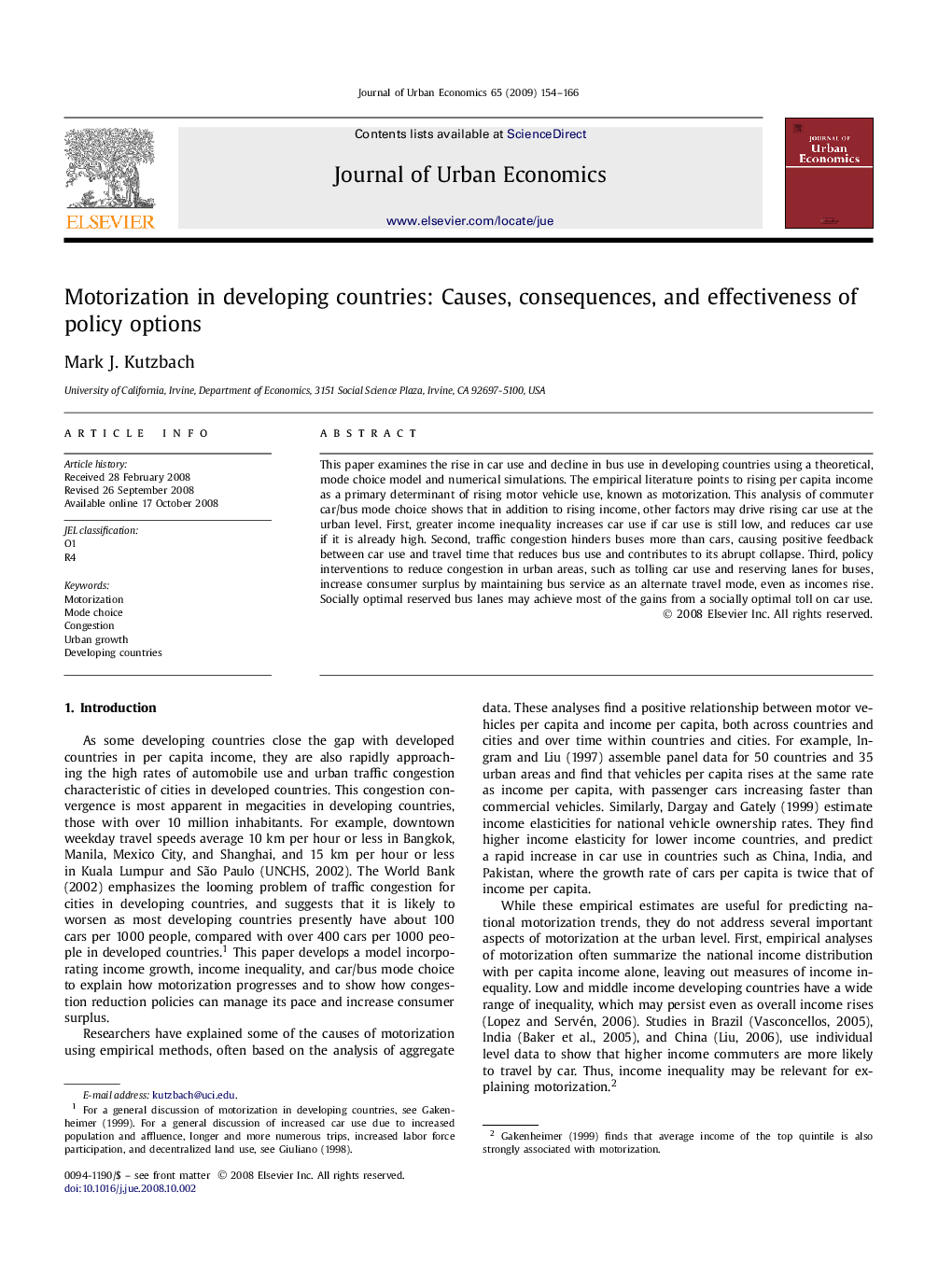| کد مقاله | کد نشریه | سال انتشار | مقاله انگلیسی | نسخه تمام متن |
|---|---|---|---|---|
| 971950 | 932430 | 2009 | 13 صفحه PDF | دانلود رایگان |

This paper examines the rise in car use and decline in bus use in developing countries using a theoretical, mode choice model and numerical simulations. The empirical literature points to rising per capita income as a primary determinant of rising motor vehicle use, known as motorization. This analysis of commuter car/bus mode choice shows that in addition to rising income, other factors may drive rising car use at the urban level. First, greater income inequality increases car use if car use is still low, and reduces car use if it is already high. Second, traffic congestion hinders buses more than cars, causing positive feedback between car use and travel time that reduces bus use and contributes to its abrupt collapse. Third, policy interventions to reduce congestion in urban areas, such as tolling car use and reserving lanes for buses, increase consumer surplus by maintaining bus service as an alternate travel mode, even as incomes rise. Socially optimal reserved bus lanes may achieve most of the gains from a socially optimal toll on car use.
Journal: Journal of Urban Economics - Volume 65, Issue 2, March 2009, Pages 154–166